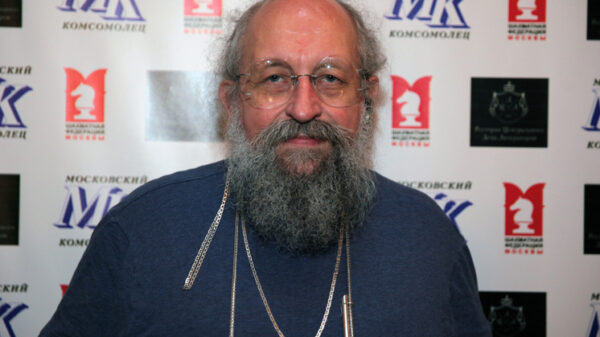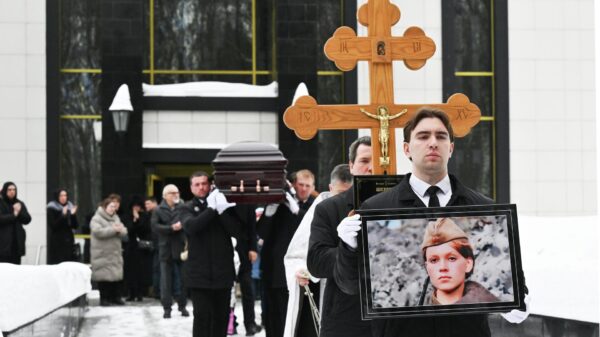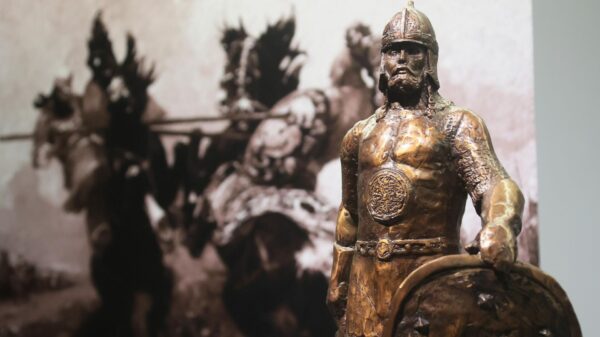 Cameron Diaz in Ridley Scott's The Counselor. Author: Alami
Cameron Diaz in Ridley Scott's The Counselor. Author: Alami
The late writer Cormac McCarthy had a mixed reputation when it came to film adaptations of his novels. For every No Country for Old Men—an Oscar-winning artistic and commercial triumph—there was a Billy Bob Thornton film adaptation of All the Pretty Horses, which was heavily edited by a clueless Harvey Weinstein and, like many of Weinstein's «prestigious» literary works. the photographs eventually became a sterilized shadow of what the book was.
However, perhaps the strangest and most misunderstood film McCarthy has ever been involved in was Ridley Scott's adaptation of the author's original work, The Counselor: the only screenplay McCarthy ever wrote for a movie, although his 1977 television screenplay the film The Gardener's Son was later published in book form.
When The Counselor was released in October 2013, it was met with a mixture of disappointment and incomprehension. The anticipation generated by Scott and McCarthy's collaboration was huge, and the cast, including Michael Fassbender as the lawyer of the same name, Brad Pitt, Penélope Cruz, Javier Bardem and Cameron Diaz, only fueled the anticipation that this would be the lead. .
However, its abstract, philosophical qualities—a world far removed from the Breaking Bad-style crime thriller that its advertisements intended—led it to be dismissed by audiences and critics alike. However, over the last decade there has been a gradual reassessment of the film. McCarthy's death looks like it will only reinforce calls to view it not as a misplaced failure, but as a masterpiece that many have misunderstood. This, for his fans, is long overdue.
After McCarthy published The Road in 2006, he appears to have abandoned the sparse, stylized novels for which he made his reputation. (His last two books, The Passenger and Stella Maris, were published last year to mixed reactions.) In a rare interview he gave during The Counselor's cinematic release, he described his intention to create a protagonist who would be in his words «a classic figure in tragedy … a decent guy who gets up one morning and decides to do something wrong.»

The script, which took McCarthy just five weeks to write, revolves around an acclaimed lawyer who gets deep into cases when he tries to get involved in a drug deal with Mexican cartels, and the personal losses he suffers when he comes up against philosophical but deep immoral antagonists. His dark view of human nature, in which evil thrives and the flawed suffer, has been one of McCarthy's main pursuits throughout his work; as he said, «other people can lead a terrible life, do everything wrong and die peacefully in their beds at the age of 102.»
It was a difficult read, and McCarthy could well have expected the film to remain unfilmed. However, as he said, «Ridley got wind of it and his reaction was to get on a plane and fly to Albuquerque.» One of Scott's professional frustrations was not being able to direct McCarthy's masterpiece, the gothic western Blood Meridian; He later commented that «[The studios] didn't want to do it. The book is so uncompromising and it's great about it… it would have gotten a double X.»
However, after a series of less complex big-budget pictures, including Robin Hood and His Alien Redux Prometheus, Scott was in the mood to do something nastier, smaller, and more personal. He said, “Cormack McCarthy sent me the script and I was blown away by the material. I liked its complexity, all the details that showed how this particular situation developed. The dialogue was fantastic — the best dialogue I've ever had.»
 «Fast, accurate and crystal clear» : Michael Fassbender and Penelope Cruz in The Counselor. Photo: Cinematic Collection/Alamy Stock Photo
«Fast, accurate and crystal clear» : Michael Fassbender and Penelope Cruz in The Counselor. Photo: Cinematic Collection/Alamy Stock Photo
Ridley Scott, director of Gladiator, Blade Runner and many other movie classics, had the advantage that he now had enough clout to see everything he wanted put into production. In addition, he was a big fan of McCarthy's work, saying, «I think he's writing the truth. Because life is like that most of the time in one form or another, be it sickness or the end of the world. Cormac writer writer. You read his letter and think that I can do it, and then you sit down and try it. And you try, dude.
The decision to make the film was not a difficult decision for Scott. “Reading this script was so fast, accurate and crystal clear. I sat for a while, then picked up the phone, called the person in question and said, «Get me an appointment with Cormac as soon as possible.» It was Friday. I met him on Monday, I think in Albuquerque. We sat for about four hours in the hotel and just chatted. And at the end Cormac says: «Let's go?» And I said, «Yes, you have to.»
With Scott on board, putting together a top-notch cast and crew was a breeze. McCarthy expressed his admiration for this, saying, «One director said, 'If you've got the right people, you don't have to direct them, but if you've got the wrong people, you can't direct them,' which I think is probably true.» . … we had real talents [in this picture] who were very excited and really wanted to do it.» Of course, their motives were artistic, not financial. The Counselor had an unusually low budget for a Scott film: only $25 million versus Prometheus' $130 million.

However, everyone who saw the film knew it would be a divisive prospect, not only because of the often outrageous sex and violence on screen, but also because of the pervasive atmosphere of horror and tragedy in McCarthy's script. As Fassbender said of reading the script, «You sit and listen intently… I read it in less than an hour.» Few literate actors would pass up the chance to work with both a legendary director and, albeit at a distance, an extremely significant writer, and so The Counselor began filming in London in July 2012, only to have production cut short a month later due to for the sudden death of Scott's younger brother Tony.
The director closed production for two weeks and returned to Los Angeles to be with his extended family. While it's easy to assume that his personal loss directly affected the film, his grimly fatalistic attitude towards mortality and chance could only be reinforced by the circumstances in which his production continued.
When the film was completed and first shown to audiences, it was very clear that it was completely below expectations, including one particularly infamous scene in which Diaz's character, Malkin, spins sexually on the windshield of his shocked car. The drug dealer's partner's Ferrari. There is the painfully slow death of Brad Pitt by decapitation, via a bizarre torture device attached to his neck. McCarthy remarked hilariously about his work: «There are scenes that are extraordinarily bizarre… I've never seen anything like this in films, and what sells films is word of mouth… I think people will come to see the film and it will do very well.» Fine».
Unfortunately, the author may have been well versed in literature, but out of step with the prevailing Hollywood trends. In a year when Frozen was the top-grossing film, followed by Iron Man 3, there wasn't much interest in McCarthy and Scott's Boschian vision of the vices of human nature.
 Relentless Vision: Brad Pitt and Michael Fassbender Photo: Maximum Film/Alamy Stock Photo
Relentless Vision: Brad Pitt and Michael Fassbender Photo: Maximum Film/Alamy Stock Photo
Despite the stellar cast, the film made less than $8 million in its opening weekend in the United States, and while it theoretically made a profit at the box office, earning a total of $71 million worldwide, it was far from the success it was intended to be. should have. The hostile reviews also harmed him; the trade title, The Hollywood Reporter snorted, «left with a very dark ending and only a slightly less depressing feeling of wasting a lot of fine talent both behind and in front of the camera», and Mark Kermode of the Observer, who hated the film, sneered, «McCarthy proves that while he may be an incomparable writer, being a screenwriter is not his forte.»
The writer, who never spoke much in public, did not comment on the film's relative failure upon its release, but Scott continued to defend his work. As he later said, “The film was so nihilistic. But so what? Apocalypse Now, Aguirre: The Wrath of God and The Godfather are nihilistic. But because The Counselor was so focused on the characters and the price [Fassbender's character] had to pay, I think it got pretty hard to digest. It upset a lot of people.»
He also blamed Twentieth Century Fox, saying, «With a cast like that, we should have had a $50 million day off. After the marketing and publicity, I was ready to kill somebody.»
 Ridley Scott, Michael Fassbender and Javier Bardem on set Photo: Album/Alamy Stock Photo
Ridley Scott, Michael Fassbender and Javier Bardem on set Photo: Album/Alamy Stock Photo
However, the film has its defenders. Director Guillermo del Toro has consistently defended it, calling it «a meditation on the illusory nature of normality and coming devastation», while others have emphasized its literary qualities by focusing on the dreamlike nature of its (often terribly violent) on-screen performances. and comparing it to John Boorman's «Point Blank» and Tarantino's films.
We hope McCarthy's death will lead to a re-evaluation of the picture. Scott himself probably put it best when he remarked in a 2013 TV interview he gave to The Counsellor: “When you get into the McCarthy universe, you can't begin to explain yourself. You can't apologize for what this story is about or make it better because there's a natural evolution in the ending. You don't read a book about an airport.»
The Counselor, for all its sinuous, dark literary elegance, is a McCarthy piece through and through. It's time to consider it as such.


























































Свежие комментарии